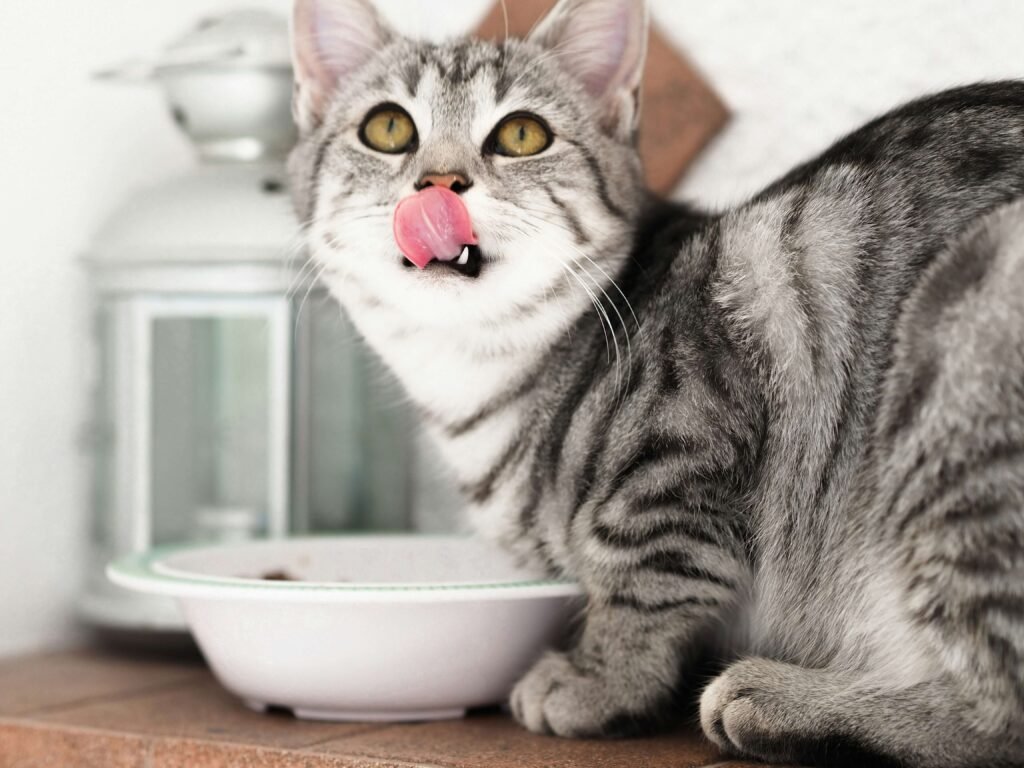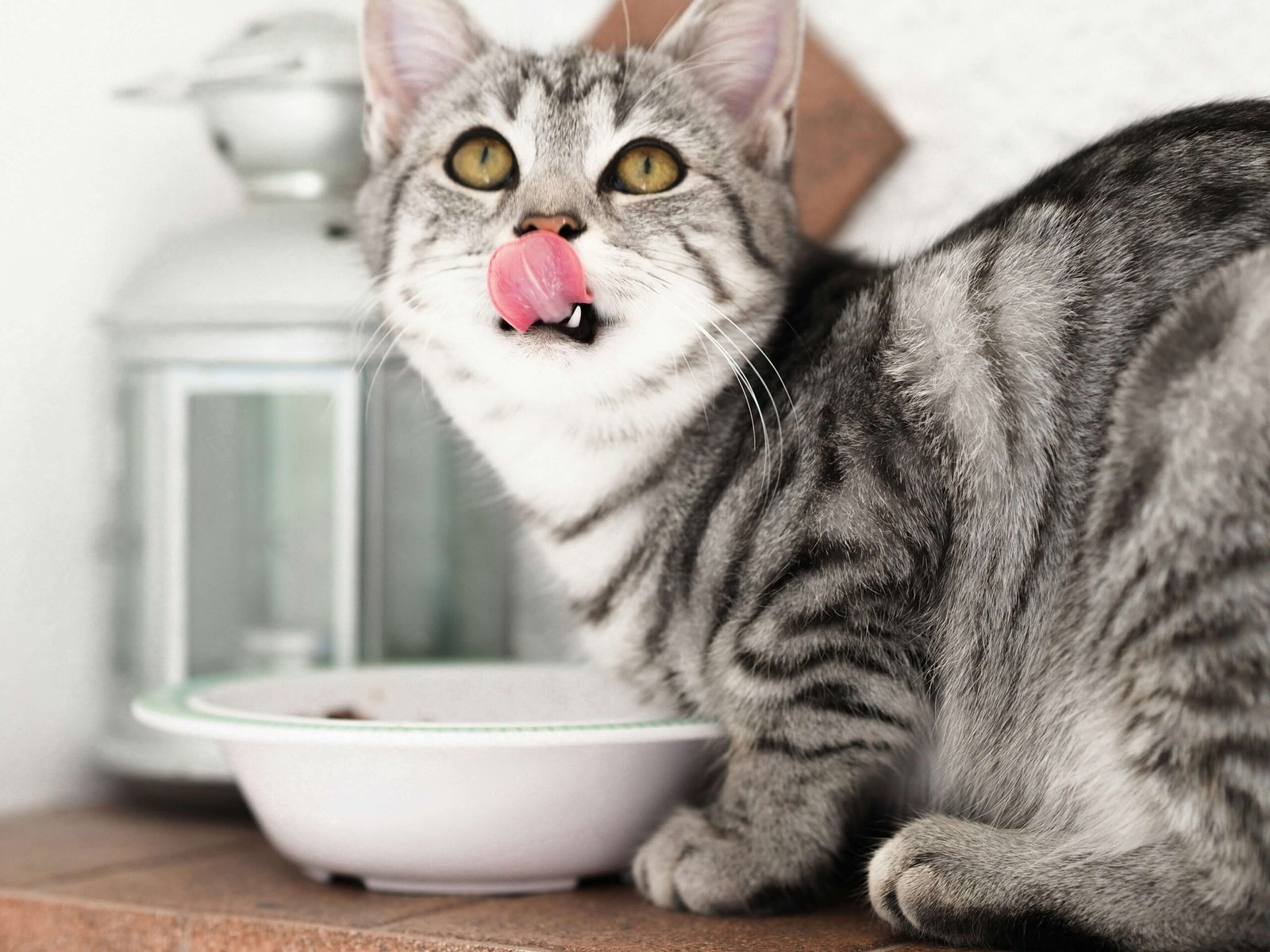Can Cats Eat Peanut Butter? What You Need to Know
Peanut butter is a beloved treat for many humans, often enjoyed on toast, in smoothies, or straight from the spoon. But what about our feline friends? Can cats safely enjoy this creamy delight too? While it’s tempting to share a dollop of peanut butter with your furry companion, it’s crucial to understand how certain foods affect their health. Cats have unique dietary needs that differ significantly from ours, and some human foods can pose risks when consumed by them. In this blog post, we’ll explore whether peanut butter is safe for cats, potential benefits and risks, and everything else you need to consider before offering it to your pet.
What’s in Peanut Butter? A Breakdown of Ingredients
Before deciding if peanut butter is suitable for your cat, it’s essential to examine its ingredients. Peanut butter contains several components that may not align with your cat’s nutritional requirements. Here’s a closer look:
Peanuts : The primary ingredient in peanut butter, peanuts are high in fat and protein. While protein is beneficial for cats, excessive fat can lead to digestive issues or obesity.
Added Sugars : Many commercial peanut butters contain added sugars, which can be harmful to cats. Sugar contributes to weight gain and dental problems in felines.
Salt : High sodium levels are common in peanut butter. Too much salt can dehydrate your cat and strain their kidneys over time.
Artificial Additives : Some brands include preservatives, flavorings, or colorings that might irritate your cat’s stomach or cause allergic reactions.
Xylitol : This sugar substitute is toxic to cats and dogs alike. Always check labels to ensure xylitol isn’t present in the peanut butter you use.
Understanding these ingredients helps clarify why peanut butter isn’t an ideal snack for cats. Moderation and careful selection are key if you choose to offer it occasionally.
Potential Benefits of Peanut Butter for Cats (In Small Amounts)
While peanut butter isn’t typically recommended as part of a cat’s diet, there are a few scenarios where it might serve a purpose—if given sparingly. Let’s delve into those possibilities:
Hiding Medication : Peanut butter’s sticky texture makes it an excellent vehicle for hiding pills or supplements your cat needs to take. Just ensure the portion is tiny to avoid overfeeding.
High-Protein Content : Peanut butter contains protein, which supports muscle development and overall health. However, cats already get sufficient protein from their regular food.
Occasional Treat : For well-behaved cats, a small taste of peanut butter could act as a rare reward without immediate harm. It’s important to monitor their reaction afterward.
Encouraging Hydration : Mixing a minuscule amount of peanut butter with water or wet food might encourage picky eaters to drink more fluids.
Bonding Experience : Sharing a moment with your cat while introducing new tastes can strengthen your bond. Ensure they enjoy it and don’t experience adverse effects.
Though these points suggest minor advantages, remember that peanut butter should never replace balanced cat food. Use it cautiously and only as an exception rather than a rule.
Check this guide 👉Can Cats Eat Popcorn? Best 7 Expert Tips!
Check this guide 👉Can Cats Eat Avocado? Best 7 Expert Tips!
Check this guide 👉Can Cats Eat Pineapple? Best 7 Expert Tips!

Key Considerations | Details |
|---|---|
Nutritional Value | High in fats; low in essential nutrients for cats |
Risk of Allergies | Possible allergic reactions to peanuts |
Digestive Impact | May cause upset stomach or diarrhea |
Toxic Ingredients | Xylitol and artificial additives are harmful |
Recommended Serving Size | None regularly; minimal amounts if necessary |
Risks Associated with Feeding Peanut Butter to Cats
Feeding peanut butter to cats comes with notable risks that every pet owner must consider. Below are some concerns associated with this popular spread:
Digestive Upset : Cats lack the enzymes needed to process complex carbohydrates found in peanut butter, leading to bloating or vomiting.
Choking Hazard : Its thick consistency can pose a choking risk, especially for smaller cats or kittens who struggle to swallow it.
Weight Gain : The calorie-dense nature of peanut butter can contribute to unhealthy weight gain if fed frequently.
Nutrient Imbalance : Regular consumption disrupts the balance of nutrients cats require, potentially causing deficiencies.
Toxicity Risks : Certain additives like xylitol or chocolate-flavored peanut butter are outright toxic to cats.
These risks underline the importance of avoiding peanut butter as a regular treat. If accidental ingestion occurs, watch for symptoms and consult a vet promptly.
Alternatives to Peanut Butter for Your Cat
If you’re looking for safer treats to spoil your cat, plenty of alternatives exist that cater specifically to their dietary needs. Consider the following options:
Cooked Chicken : Plain, unseasoned chicken provides lean protein and satisfies your cat’s carnivorous cravings.
Tuna (in Moderation) : Offer canned tuna packed in water—not oil—as an occasional indulgence.
Catnip : Most cats adore catnip, which serves as both a fun and safe treat.
Freeze-Dried Liver : These snacks are nutrient-rich and mimic the natural prey cats would hunt in the wild.
Commercial Cat Treats : Specially formulated treats ensure your cat receives appropriate nutrition while enjoying something tasty.
By opting for these alternatives, you prioritize your cat’s health while still providing variety in their diet.
How Peanut Butter Affects Your Cat’s Digestive System
Cats have sensitive digestive systems, and introducing unfamiliar foods like peanut butter can lead to complications. Here are some ways peanut butter might impact your cat’s digestion:
Lack of Necessary Enzymes : Cats lack the enzymes required to break down certain components in peanut butter, which can result in indigestion.
High Fat Content : The high fat in peanut butter can overwhelm a cat’s digestive system, leading to diarrhea or loose stools.
Artificial Ingredients : Additives such as preservatives or sweeteners may irritate the stomach lining and cause discomfort.
Difficulty Swallowing : The sticky texture of peanut butter can make it challenging for cats to swallow, increasing the risk of choking.
Delayed Digestion : Peanut butter takes longer to digest than typical feline food, potentially causing bloating or discomfort.
While occasional exposure might not harm your cat, repeated consumption can disrupt their delicate digestive balance. Always prioritize foods that align with their natural dietary needs.
Signs Your Cat May Have Eaten Too Much Peanut Butter
If your cat accidentally consumes peanut butter or you’ve given them a small amount, it’s important to watch for signs of distress. Here’s what to look out for:
Vomiting : Frequent vomiting could indicate that your cat’s stomach is struggling to process the peanut butter.
Diarrhea : Loose stools are a common reaction to foods that cats cannot digest properly.
Lethargy : If your cat seems unusually tired or uninterested in activities, it could be a sign of digestive upset.
Excessive Drooling : Peanut butter’s sticky texture might cause drooling as your cat tries to remove it from their mouth.
Loss of Appetite : A sudden refusal to eat may indicate nausea or discomfort caused by the peanut butter.
Observing these symptoms can help you determine whether your cat needs immediate veterinary attention. Early intervention ensures their well-being and prevents further complications.
Tips for Safely Introducing New Foods to Your Cat
Introducing new foods to your cat requires caution and preparation. Here are some tips to ensure the process goes smoothly:
Start Small : Offer only a tiny portion of any new food to monitor how your cat reacts before giving more.
Avoid Harmful Ingredients : Research potential toxins or allergens in human foods to avoid accidental poisoning.
Consult Your Vet : Always seek professional advice before offering unfamiliar foods to your cat.
Observe Behavior : Pay close attention to changes in behavior, appetite, or litter box habits after introducing a new food.
Stick to Feline-Friendly Options : Opt for treats specifically formulated for cats instead of experimenting with human snacks.
By following these guidelines, you can minimize risks while exploring new flavors with your cat. Remember, their health and safety should always come first.
Frequently Asked Questions About Cats and Peanut Butter
Is peanut butter safe for cats?
In very small amounts, plain peanut butter without harmful additives may not harm cats, but it’s not recommended due to potential risks.
Can peanut butter help my cat take medication?
Yes, a tiny bit of peanut butter can mask the taste of pills, but always check for toxic ingredients first.
How much peanut butter can I give my cat?
Limit it to a pea-sized amount at most, and only occasionally.
Are there any long-term effects of feeding peanut butter to cats?
Yes, frequent consumption can lead to obesity, digestive issues, or nutrient imbalances.
What should I do if my cat accidentally eats peanut butter?
Monitor them closely for signs of distress, such as vomiting or lethargy, and contact your veterinarian if needed.
Final Thoughts: Prioritizing Your Cat’s Health
In conclusion, while peanut butter isn’t inherently toxic to cats, it offers little nutritional value and carries several risks. As responsible pet owners, it’s vital to prioritize our cats’ health by sticking to species-appropriate diets and treats. Instead of experimenting with human foods like peanut butter, explore safer alternatives designed specifically for felines. By doing so, you’ll ensure your furry friend remains happy, healthy, and thriving for years to come. Remember, moderation and mindfulness are key—your cat will thank you for it!
Do Cats Have Taste Buds? Best 7 Expert Tips! – Discover how cats experience flavors and why their taste is so unique.
Do Dogs Have Taste Buds? Best 7 Expert Tips! – Discover how dogs experience taste, their preferences, and what it means for their diet and health.
Can Cats Taste Sweet? Best 7 Expert Tips! – Discover why cats can’t taste sweetness, how it affects their diet, and tips to keep them healthy and happy.
Can Dogs Taste Sweet? Best 7 Expert Tips! – Discover how dogs perceive sweetness, which foods are safe, and tips to manage their sweet cravings responsibly.





